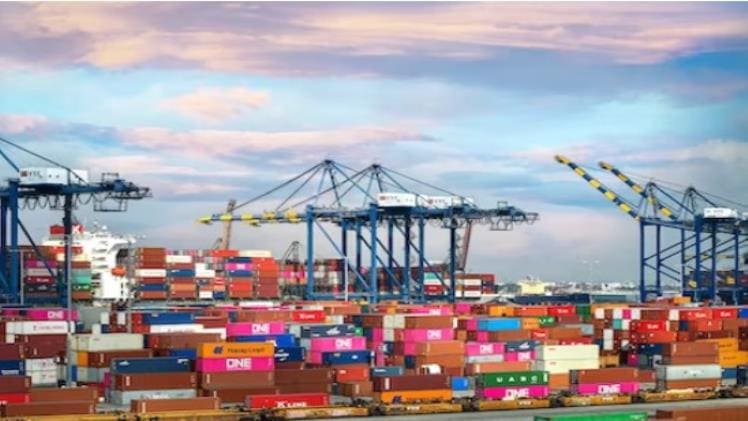Introduction
The realm of supply chain logistics encompasses a multitude of intricate factors that significantly contribute to the triumph of a business venture. Its scope encompasses the intricate planning, seamless coordination, and meticulous management of resources as they traverse from their origin to their ultimate destination. Embracing procurement, production, distribution, storage, and delivery, this multifaceted domain aims to facilitate the timely and cost-efficient conveyance of goods while upholding the highest quality standards. Although the management of supply chain logistics can be a formidable task, its successful implementation can indubitably yield a remarkable positive impact on a business’s bottom line.
Defining the Intricacies of Supply Chain Logistics
Supply chain logistics, at its core, involves the meticulous orchestration of an efficient flow of goods and services from their point of origin to their ultimate point of consumption. This intricate process hinges on an extensive network of suppliers, distributors, carriers, storage facilities, and other relevant stakeholders. As an indispensable component of business success, best supply chain logistics ensures the punctual delivery of goods in the appropriate quantities.
Logistics encompasses a plethora of activities, including procurement, inventory management, transportation, warehousing, customer service, demand forecasting, order fulfillment, and packaging design and production planning. These activities are meticulously designed to provide customers with desired products promptly and at affordable costs while minimizing wastage at every stage of the supply chain process. Additionally, logistics optimizes resources by efficiently managing inventory levels to prevent stock-outs or to swiftly fulfill orders when the need arises. Furthermore, supply chain logistics empowers companies to manage costs by reducing transportation expenses through load consolidation and employing efficient routing systems for distribution networks, thus navigating the complexities of today’s globalized economy with its demanding product availability and delivery timeframes.
Benefits Unleashed by Supply Chain Logistics
Supply chain logistics represents a pivotal cog in the machinery of a thriving business venture. Its essence lies in the harmonious coordination of resources and information to ensure the timely and cost-efficient delivery of goods and services to customers. This intricate system confers several noteworthy benefits, including:
- Enhanced Cost Efficiency: By embracing an integrated supply chain process, companies can effectively reduce costs by eliminating superfluous handling fees or stocking expenses incurred from storing products at multiple locations before reaching customers. Moreover, by consolidating orders and optimizing delivery routes, businesses can save money and maximize efficiency.
- Expedited Delivery: With effective supply chain management, businesses can accelerate delivery times for their customers without compromising on quality or reliability. Real-time data on inventory levels and shipment schedules empowers supply chain managers to swiftly adapt routes to meet customer demands promptly.
- Elevated Customer Satisfaction: A well-executed supply chain allows companies to exceed customer expectations by providing faster deliveries, precise tracking information, improved communication with vendors/partners/suppliers, and enhanced product availability during critical periods, such as peak seasons.
Navigating the Challenges of Supply Chain Logistics
Supply chain logistics represents a vital pillar of any business, but mismanagement can lead to frustration and suboptimal outcomes. The challenges associated with supply chain logistics are multifaceted and demand meticulous attention to ensure the efficient delivery of goods and services. This article will shed light on prevalent challenges in supply chain logistics today and offer effective management strategies to mitigate their impact.
Managing inventory levels emerges as a prominent challenge in supply chain logistics. Accurate demand forecasting is crucial to ensure sufficient stock availability without overstocking or experiencing inventory shortages. Failure to achieve this accuracy can result in lost sales due to unfulfilled orders or customer dissatisfaction stemming from prolonged waiting periods. To tackle this issue, companies should harness technological tools such as enterprise resource planning (ERP) systems and big data analytics to anticipate customer demand accurately and manage inventory levels accordingly.
Efficient and cost-effective transportation management presents another challenge in supply chain logistics. Companies must carefully select the appropriate mode of transport for each shipment while also striving to keep costs at a minimum by taking advantage of discounts or special deals with carriers. Furthermore, ensuring that shipments arrive on time and in optimal condition adds another layer of complexity to transportation management.
Strategies for Enhancing Supply Chain Logistics
Recognizing the paramount significance of effective supply chain logistics, businesses must continuously seek avenues for improvement to maintain a competitive edge. Here are some strategies that can enhance your supply chain logistics:
- Streamline Processes: Streamlining various processes such as inventory management, order fulfillment, and shipping is a key strategy for improving supply chain logistics. By optimizing these processes, businesses can reduce costs and ensure that orders are delivered punctually and without complications. Consider investing in automated systems or software solutions that can streamline different elements of your supply chain operations.
- Embrace Technological Solutions: Leveraging technological solutions is essential for enhancing supply chain logistics. Today’s technology tools offer a wide array of features that can streamline operations, including real-time tracking capabilities, predictive analytics tools, AI-driven routing optimization software, and more. Investing in the right technology solutions can improve visibility across the entire supply chain while reducing costs associated with inefficient manual processes or outdated systems.
- Emphasize Automation: Automation has emerged as a critical element in your business profitability. Integrating automation into supply chain logistics processes can yield significant benefits. Automated systems can enhance efficiency, accuracy, and speed, leading to improved overall performance. From warehouse automation to robotic process automation (RPA) in administrative tasks, embracing automation can revolutionize supply chain logistics.

In conclusion, the success of any business hinges on the effective management of supply chain logistics. This intricate domain encompasses a wide array of activities and challenges that must be navigated with precision and innovation. By investing in the right technologies, streamlining processes, and embracing automation, businesses can optimize their supply chain logistics, ensuring the timely delivery of goods while minimizing costs. In an ever-evolving business landscape, an efficient and well-designed supply chain logistics strategy becomes a powerful tool to drive success and maintain a competitive edge.

